Medieval Cities. Constantinople - The Gateway to the East.
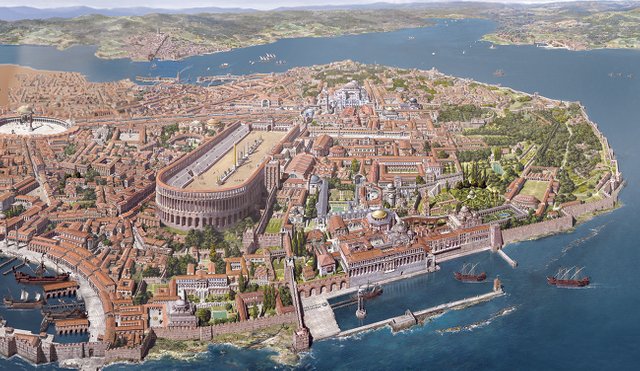
I have always been fascinated by ancient civilisations and history. The history of the diffrent regions of our world. The religions, wars, riches, monuments, behaviours, triumps and losses. This will be looking at the history of the city from the Bosphorus Strait, the new capital of the Roman Empire, Constantinople. 'The Gateway to the East'. Enjoy!
Constantinople - The Gateway to the East.
Settlements :
- 1300/1100 by Thracian tribe near the peninsula.
- 657 Greek expansion. Colonists from the city-state of Megara (Corinth) found the region abandoned and decided to start a settlement. It was name 'Byzantium'.
- 324 Roman Emperor Constantine founded Constantinople and made it the Roman Capital. It was known as 'Nova Roma' meaning 'New Rome'.
Sieges :
From 559-1453 the city has been besieged a total of 20 times in it's history. Kutrigurs, Avars, Slavs, Sassanid Persians, Umayyad Calaphate, Bulgaria, Rus, Rebels and 3 previous Ottoman attempts all failed. Only 2 were successful. 1204 the 4th crusade were the city was sacked. 1261 Nicean troops captured the city unguarded from a Latin empire and returned it to the Byzantine Empire, this wasn't a siege tho. And 1453 the Ottoman empire, equipped with massive cannons known as 'Dardanelles Cannons' pounded the fortified walls for a month and a half before they fell, the city remains a Turkish territory to this day.
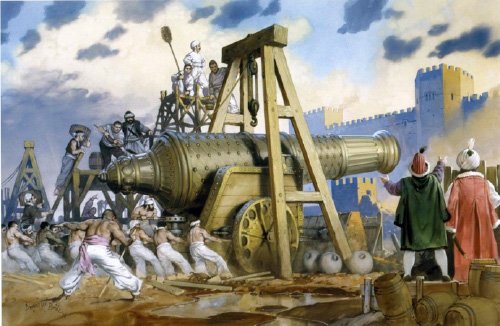
Imagine the fear and uncertainty if you were a person living behind the walls. The sound of cannon balls smashing against the walls, the glare at night creeping over the walls from the fire torches encamped outside. You know there's tens of thousands of bloodthirsty troops just waiting to get into your city, your home. Kill you and your beloved family, or maybe even worse, get taken as slaves and have your possessions you've worked all your life for taken.
Justinian's Plague :
541-542 was the 'Plague of Justinian'. The same kind of plague as 'The Black Death' which happened in the 14th century. It's believe it arrived from a trading ship from Egypt. It's estimated around 5,000 people a day died and about 40% of the population of the city was lost that year (730000). Plagues hit the city again in the 6th, 7th and 8th centurys, aswell as the black death in the 14th century.
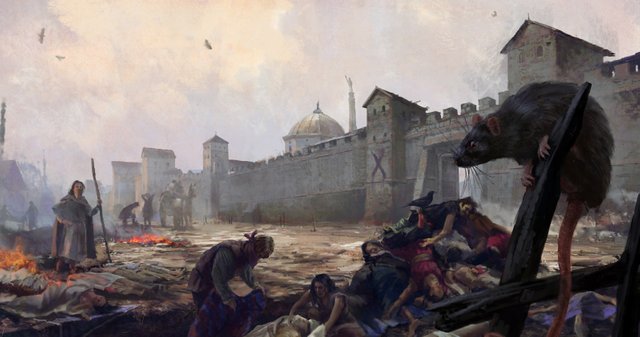
Everybody is slowly and painfully dying all around you and you don't know why. Heaps of bodies are everywhere covered in black blisters and bloodstains and you think it's just a matter of time until you're next. Is this the wrath of god for our sins? would you run from the city?
Monuments/Inventions :
672 'Greek Fire' basically the first flame throwers were invented in the city and were a well kept secret. They were mostly used in naval battles as it continued to burn even when floating on water.
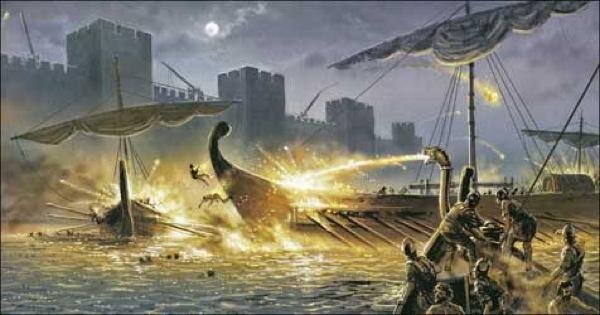
Fortifications. These were probably the best in the world at the time. Ghengis Khan took one look at them and turned around. It took an huge new weapon from the Ottomans and a lot of patience to get through. A dry moat that could be quickly filled from pipes from the city, coupled with a high wall. A clearing then a higher wider wall which could easily accomodate thousands of defenders. Add the Greek Fire into it and it's no wonder the city withstood so many attacks.
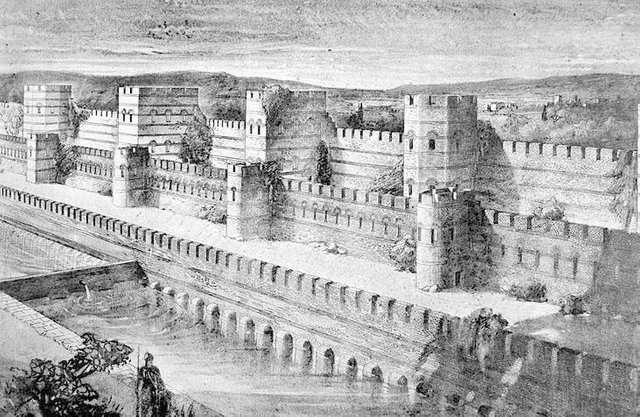
You're an attacking soldier. You're up next in battle. You look upon this fortress, what are you thinking? Your commerades are in the moat still burning to death, the water isn't helping. The foundations of the walls are too deep, tunneling has failed. Arrows and rocks are cutting your division down. Your army is starving, the city has farms inside the walls that strategy won't work. It's do or die, the order is given. Attack.
532–537 Hagia Sophia. A grand cathedral that took 7 years to build. Under the orders of Justinian I and designed by Isidore of Miletus. It was converted to a mosque once under Ottoman rule in 1453.
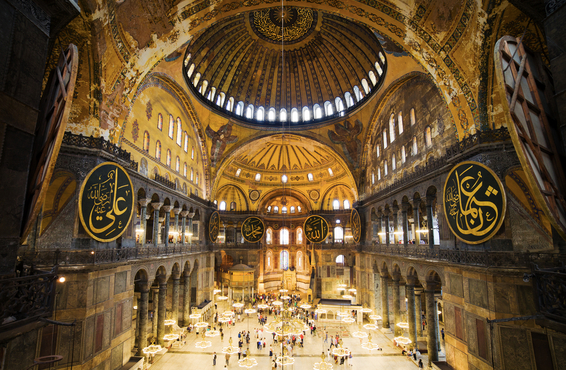
God played a huge part of society in those days. So a monumental building was needed. The detail and scale of the buildings is very impressive, and they still stand to this day.
Thanks for reading.
Drop a like if you enjoyed.
Will do a follow for a follow.
cool article!
Thanks! :)